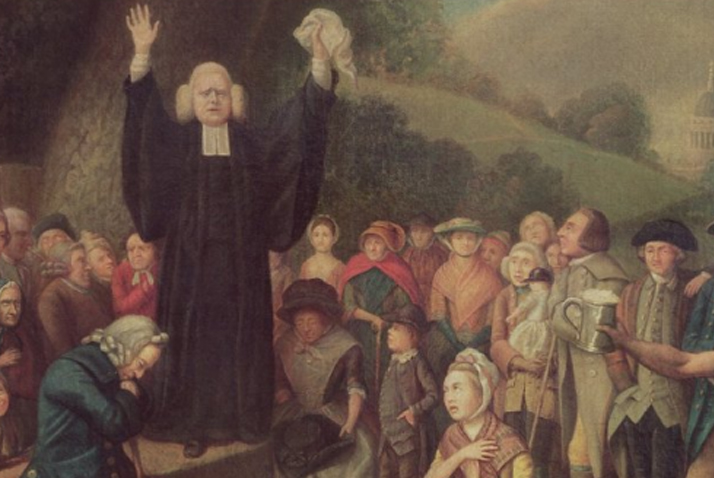When George Whitfield was asked for the reason behind his impassioned preaching he gave this reply.
“I’ll tell you a story. The Archbishop of Canterbury in the year 1675 was acquainted with Mr. Butterton the [actor]. One day the Archbishop . . . said to Butterton . . . ‘pray inform me Mr. Butterton, what is the reason you actors on stage can affect your congregations with speaking of things imaginary, as if they were real, while we in church speak of things real, which our congregations only receive as if they were imaginary?’ ‘Why my Lord,’ says Butterton, ‘the reason is very plain. We actors on stage speak of things imaginary, as if they were real and you in the pulpit speak of things real as if they were imaginary.’”
“Therefore,” added Whitefield, ‘I will bawl [cry aloud], I will not be a velvet-mouthed preacher.” (Harry S. Stout, The Divine Dramatist: George Whitfield and the Rise of Modern Evangelicalism, 239–240)

Leave a Reply